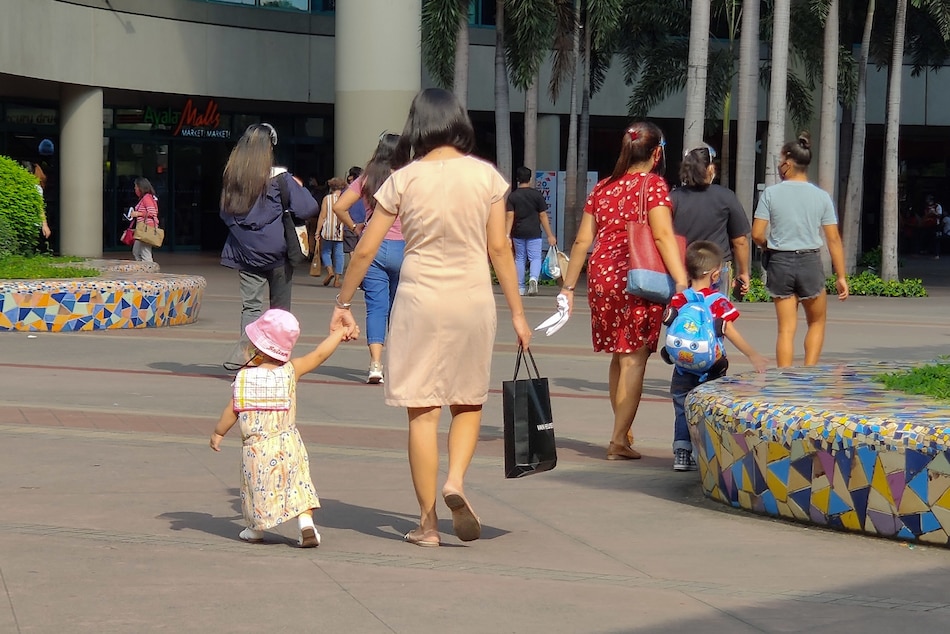Govt urged to fast-track COVID-19 vaccination drive vs easing restrictions | ABS-CBN

Welcome, Kapamilya! We use cookies to improve your browsing experience. Continuing to use this site means you agree to our use of cookies. Tell me more!
Govt urged to fast-track COVID-19 vaccination drive vs easing restrictions
Govt urged to fast-track COVID-19 vaccination drive vs easing restrictions
ABS-CBN News
Published Feb 16, 2021 08:34 AM PHT
|
Updated Feb 16, 2021 08:43 AM PHT
MANILA - The national government is urged to fast-track its vaccination drive before easing quarantine restrictions nationwide, the OCTA Research Group said Tuesday.
MANILA - The national government is urged to fast-track its vaccination drive before easing quarantine restrictions nationwide, the OCTA Research Group said Tuesday.
Acting Socioeconomic Planning Secretary Karl Chua earlier said he hopes President Rodrigo Duterte would allow the entire Philippines to be placed under modified general community quarantine beginning March 21.
Acting Socioeconomic Planning Secretary Karl Chua earlier said he hopes President Rodrigo Duterte would allow the entire Philippines to be placed under modified general community quarantine beginning March 21.
The gradual easing of restrictions has so far been "successful" in managing COVID-19 cases in Metro Manila, which remains under general community quarantine, according to OCTA Research Group fellow Guido David.
The gradual easing of restrictions has so far been "successful" in managing COVID-19 cases in Metro Manila, which remains under general community quarantine, according to OCTA Research Group fellow Guido David.
"Kung suddenly magbubukas tayo talagang may risk na tumaas ang bilang ng mga kaso lalo na hindi pa natin nagagawa yung complete biosurveillance, di natin alam yung extent kung gaano karaming variant na rito," he said.
"Kung suddenly magbubukas tayo talagang may risk na tumaas ang bilang ng mga kaso lalo na hindi pa natin nagagawa yung complete biosurveillance, di natin alam yung extent kung gaano karaming variant na rito," he said.
ADVERTISEMENT
(If we suddenly open up, there's a risk cases will increase as we have not yet completed biosurveillance, we don't know yet the extent of how many COVID-19 variants are here.)
(If we suddenly open up, there's a risk cases will increase as we have not yet completed biosurveillance, we don't know yet the extent of how many COVID-19 variants are here.)
"Sana nga 'yun 'yung mapabilis 'yung bakuna, hindi 'yung MGCQ (modified general community quarantine) ang mapabilis."
"Sana nga 'yun 'yung mapabilis 'yung bakuna, hindi 'yung MGCQ (modified general community quarantine) ang mapabilis."
(We hope the vaccines will be fast-tracked, not the MGCQ.)
(We hope the vaccines will be fast-tracked, not the MGCQ.)
David also expressed concern over Chua's proposal to expand the capacity of public transportation and to gradually allow people between the ages of 5 to 7 years old outside their homes.
David also expressed concern over Chua's proposal to expand the capacity of public transportation and to gradually allow people between the ages of 5 to 7 years old outside their homes.
"Nakakagulat talaga yan. Mahirap pang ipasunod sila sa health protocols. Sana nakarollout na tayo ng bakuna, i-fastrack natin ang bakuna natin, yun ang priority," he said.
"Nakakagulat talaga yan. Mahirap pang ipasunod sila sa health protocols. Sana nakarollout na tayo ng bakuna, i-fastrack natin ang bakuna natin, yun ang priority," he said.
(It's surprising. They can't even follow health protocols yet. We hope we roll out the vaccine, that it would be fast-tracked. That's the priority.)
(It's surprising. They can't even follow health protocols yet. We hope we roll out the vaccine, that it would be fast-tracked. That's the priority.)
He added that those below 16 years old are not yet eligible to receive the vaccine, which might make them carriers or superspreaders.
He added that those below 16 years old are not yet eligible to receive the vaccine, which might make them carriers or superspreaders.
"Sa palagay natin malaking factor yan kasi kung di sila mababakunahan, 'yung bagong variant sinasabi nila mas nakakahawa sa kabataan. Ang problema is magiging carrier sila," he said.
"Sa palagay natin malaking factor yan kasi kung di sila mababakunahan, 'yung bagong variant sinasabi nila mas nakakahawa sa kabataan. Ang problema is magiging carrier sila," he said.
(That's a huge factor because if they can't vaccinated, the new variant is said to be more contagious among the youth. The problem is they might be carriers.)
(That's a huge factor because if they can't vaccinated, the new variant is said to be more contagious among the youth. The problem is they might be carriers.)
Read More:
Teleradyo
OCTA Research Group
Guido David
MGCQ
Metro Manila
COVID-19 vaccine
Philippines COVID-19 vaccination
public transport
NEDA
Karl Chua
ADVERTISEMENT
ADVERTISEMENT


